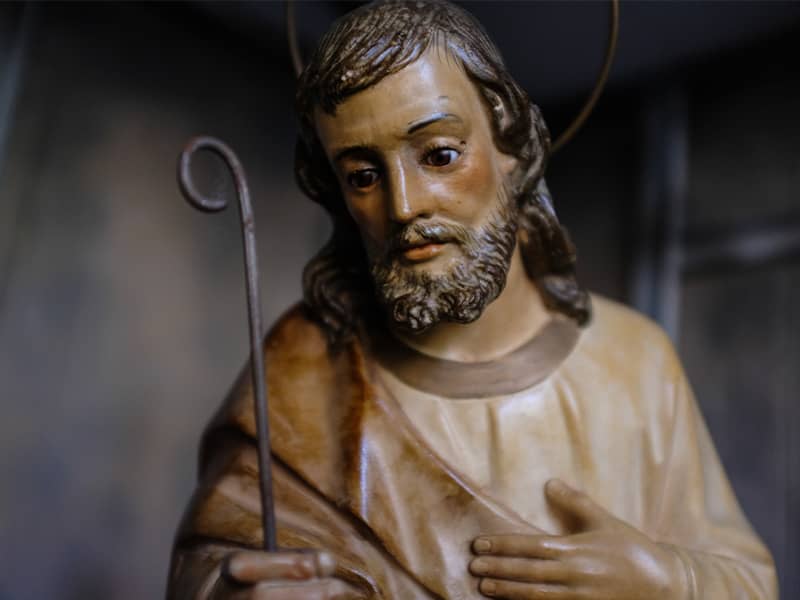NEWARK, N.J. -- With the bodies of so many victims of the World Trade Center attacks lost without a trace, the Roman Catholic Archdiocese of Newark is taking the extraordinary step of allowing families to inter an urn or casket containing only mementos of the missing person.
After the traditional memorial Mass, the receptacle could then be buried in a Catholic cemetery, just like a coffin with a body.
"People don't have a body, but they want closure, so we've decided to allow this," archdiocesan spokesman James Goodness said.
So far it appears that the Newark Archdiocese, which covers Essex, Union, Bergen and Hudson counties -- where hundreds and perhaps thousands of Trade Center victims lived -- is the only one in the region granting the unusual dispensation.
In Catholicism, as in orthodox religious traditions like Judaism and Islam, custom precludes burying anything except the mortal remains of the deceased. These faiths believe a body deserves special respect as the former vessel for the spirit, and Catholic tradition, more than most Christian denominations, has revered the body as a sign of faith in the resurrection.
Jews and Muslims also do not allow cremation, and for Catholics, cremated remains -- known as cremains -- cannot be scattered. An urn with the cremains must be interred or the urn is placed in a columbarium, a special vault with niches resembling a dovecote.
Goodness said the exception was made for pastoral reasons. With so many victims of the Sept. 11 attacks from New Jersey, which is heavily Catholic, there are many families whose loved ones' remains will never be found.
He said the families have been asking priests and funeral directors if they could bury a container of mementos, and archdiocesan officials agreed in consultation with Archbishop-elect John Myers, who was formally installed as archbishop on Tuesday (Oct. 9).
"This is something that's out of the ordinary for us. But we recognize that families need it," Goodness said. "We felt that this is something that could be very helpful to the families. This would give the families something a little more tangible to remember their loved one."
Catholicism's hierarchical structure generally means that exemptions are made by the bishop or the pope, so that liturgical practices are uniform. (Protestant polity tends toward greater independence for its clergy and there is less of a focus on the disposition of the corpse itself.)
In Judaism, where rabbis have greater autonomy to make these decisions, local religious leaders are also being innovative in providing for families who would like to bury a container with the personal effects of a loved one whose remains will never be found.
Rabbi Charles Kroloff of Temple Emanu-El in Westfield said some of the 10 families in his congregation affected by the attacks were inquiring about that kind of arrangement.
"In the case of the Sept. 11 tragedy, we're trying to be as flexible as possible," said Kroloff, the former president of the Reform movement's Central Conference of American Rabbis. "Anything that is reasonable is acceptable. To do this without any remains whatsoever is unusual. But I think there is enough flexibility in Jewish law to permit that."
The religious leaders who are allowing the unusual burial exception are basing their decision on the common practice of burying a body with memorabilia. Catholics have long allowed people to be buried with various mementos, and Jews are often buried with a fringed prayer shawl known as a tallit, or perhaps with a handful of earth from Israel.
Families of the Trade Center victims will have a similar option after New York Mayor Rudolph Giuliani's recent announcement that each family will receive a wooden urn with dirt from the site.
Allowing the interment of such a container is only a short and understandable step beyond what is already done when there is a body, Kroloff said.
"There are some in the Jewish community who place a picture on the headstone," he said. "If you can place a picture on a stone, you can place a picture in a container that is buried. I consider that to be acceptable."
The practice appears to be drawing interest.
Rich Mechler, owner of Boulevard Funeral Home in New Milford, said the family of a Catholic man who perished without a trace in the tower collapses is looking to bury a receptacle with mementos.
"It would be just like a traditional funeral," Mechler said. "We would go from the church (after a memorial Mass) to the cemetery to bury a casket of memorabilia."
Goodness said the Newark Archdiocese was also weighing the possibility of establishing a special area in Holy Cross Cemetery in North Arlington to be set aside for victims of the World Trade Center attacks. The area overlooks the New York skyline that was once dominated by the Twin Towers.
Mechler said anything that can give a locus for grief is helpful.
"People need a place where they can memorialize the individual," he said. "A lot of rules are being bent in a lot of areas because of this situation."

